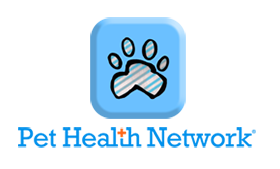Cryptorchidism
WHAT HAPPENS: Failure of the testicles to descend into the scrotum. In normal male mammals, in the scrotum, a tendon-like piece of tissue called the gubernaculum, pulls the testicle from the abdomen (belly), out through the inguinal ring (a slit in the groin), and into the scrotum. In some individuals, this does not happen. These animals have "retained testicles."
DIAGNOSING: Most of the time, the veterinarian can simply feel for the presence or absence of testicles in the scrotum. If one or both are not present, then the pet is presumed to be cryptorchid. In some animals, the undescended testicle or testicles can be felt under the skin near the scrotum or in the groin area.
If animal was found or adopted as an adult, it may be unknown if lack of testicles is due to cryptorchidism or if was simply neutered before adoption. Surgery scars, tattoos, tipped-ears can all be signs that an animal had been neutered. For dogs, hormone levels can be checked or an ultrasound/sonogram can be performed to determine if an animal has retained testicles. For cats, the hormone testosterone can cause spiny barbs on the penis to be very pronounced and visible.
TREATMENT: Whether an animal has retained one or both testicles, dogs and cats with cryptorchidism should be castrated (neutered.) The undescended testicle or testicles must be surgically removed, either from the groin or from the abdomen. If a dog or cat has one descended testicle, that testicle also should be surgically removed to prevent health and behavior problems associated with testosterone.
COMPLICATIONS: If a pet has both testicles retained, he will likely be sterile. If one testicle is descended, he could still be fertile. Also, the testosterone from descended testicle can cause increased risks of prostate enlargement, prostate infection and prostate cancer as well as all the negative behaviors related to testosterone. The undescended testicle is abnormal and has a high likelihood of becoming cancerous.
PREVENTION: Cryptorchidism is hereditary. Dogs and cats with even just one retained testicle should not be allowed to breed. If the breeder of your dog or cat is known, they should be alerted, so they can assess their breeding program. Castration (neutering) a cryptorchid pet will help prevent him from developing many health problems.
---Meredith L. Weltner-Sharin VMD
Cryptorchidism- Veterinary Partner
Cryptorchidism- Pet Health Network
Cryptorchidism- Pet Education
Cryptorchidism- Mark E. Peterson DVM, DACVIM

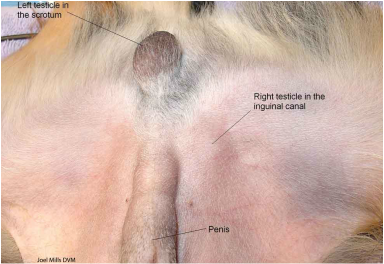
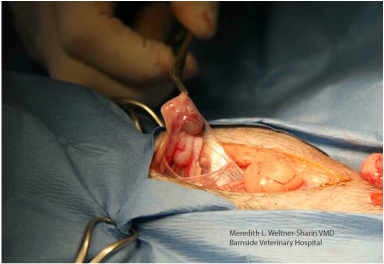
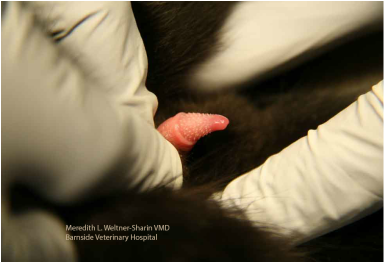
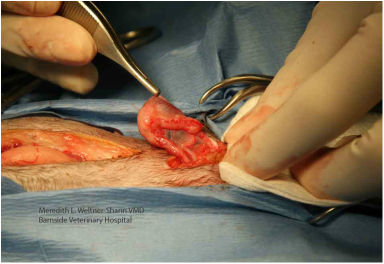
 RSS Feed
RSS Feed

